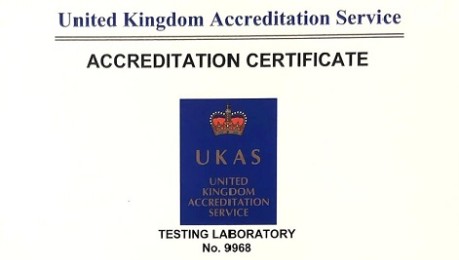Monday 15th April 2019, 10:30am
The University of Edinburgh’s DNA sequencing facility has received an internationally-recognised accreditation to mark the quality of its genome analysis services.

Edinburgh Genomics, employs advanced technologies that can decode the entire genetic make-up of a human or any other species in a matter of days.
The accreditation is for whole genome sequencing at Edinburgh Genomics’ Clinical Facility, which means it can now provide these services to organisations who are required to adhere to tighter regulations, such as the NHS.
Edinburgh Genomics is the first laboratory of its kind in Scotland to achieve the UK government-recognised quality mark, which confirms its services meet an international standard – called ISO 17025:2005.
Accreditation involves an external assessment process by the UK’s National Accreditation Services (UKAS), which ensures compliance with quality standards for testing laboratories.
"This is an important quality milestone and provides reassurance for our customers from clinical research to agriculture – as well as pharmaceutical companies and the NHS – that the services we provide are of the highest standard."
Edinburgh Genomics is part of the Scottish Genomes Partnership, a collaborative research programme studying genomes from healthy and sick people in Scotland with a view to improving patient care.
Professor Tim Aitman, Co-Director of the Scottish Genomes Partnership and Clinical Director of Edinburgh Genomics, said the accreditation will be increasingly important in the next two to three years as whole genome sequencing is implemented in the NHS in Scotland.
In addition to clinical services, Edinburgh Genomics provides cutting-edge sequencing facilities to agritech companies and animal breeding researchers.
"ISO accreditation provides us with additional assurance that samples are handled consistently and within a robust framework that ensures quality and delivery at scale, enabling us to have absolute confidence in the results and drive forward innovation in livestock genetics and breeding."
Professor Mick Watson, Head of Genetics and Geonomics, The Roslin InstituteSource: The University of Edinburgh